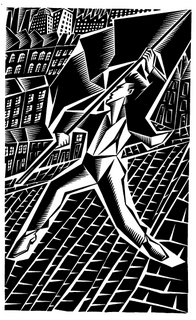Giday WoldeGabriel, a geologist at the Los Alamos National Laboratory and another leader of the team, said the abundance of monkey and other mammal bones and petrified wood found at the sites showed that this was a woodland ecology between four million and six million years ago.Paleontologists Find Species With Links to 'Lucy Skeleton'
All ancient civilizations passed through it, all ancient civilizations are represented in its fertile plains. All the monothiestic religions and even the gnostic heresies are represented in Ethiopia in their earliest forms.
And of course the great journey of modern humanity begins in Ethopia.
Note to vegans; Omnivore
'Missing link' to earliest humans revealedProfessor Tim White, from the University of California at Berkeley, USA, one of the leaders of the team that discovered the fossils, said: "Australopithecus became a superior omnivore, able to eat tubers and roots with more fibre and grit, adapting it better to times of scarcity during periods of extended drought.
Note to Creationists: that makes two 'missing links' in a week.
Evolution 2
Creationism 0
Intelligent Design 0
"They may have been small brained, but they stuck around a long time, fully half of our zoological family's 6 million-year existence on the planet."
The scientists believe Australopithecus evolved from some species of Ardipithecus.
In all, teeth and jawbones of eight individuals were found, all dated to about 4.1 million years ago.
A partial thigh bone and hand and foot bones similar to those of "Lucy" dating from 3 million to 3.4 million years were also found 60 kilometres away from the site.
A Link in Lucy's PastPaleoanthropologist Tim White of the University of California, Berkeley, and his colleagues have unearthed fossils representing the oldest species of Australopithecus, Au. anamensis, in northeastern Ethiopia's Middle Awash valley. The 4.1-million- to 4.2-million-year-old remains--including jaw fragments, teeth and a femur--extend the range of this hominid, which was previously known only from two sites in Kenya. And in terms of age and anatomy, they are intermediate between two other hominids found in the Middle Awash: the older Ardipithecus ramidus and the younger Au. afarensis (Lucy's species).
Asa Issie, Aramis and the origin of Australopithecus
Humanity is widely believed to have descended from the genus Australopithecus, but the beginnings of that genus are shrouded in mystery. Newly discovered fossils from a previously unsampled time slice in the Middle Awash study area of Ethiopia add important information on the subject. They represent the earliest known member of the genus, Australopithecus anamensis, the first to be found outside the Turkana basin in Kenya. The finds are from a woodland context and show how Australopithecus may have evolved from the more primitive Ardipithecus, and may have been ancestral to Australopithecus afarensis, popularly known as 'Lucy'.
Also see Primates
Find blog posts, photos, events and more off-site about:
Lucy, homonids, evolution, paleoanthropology, anthropology, Darwin, Darwinism, Leaky, Ethopia, Kenya, humans, missing-link


